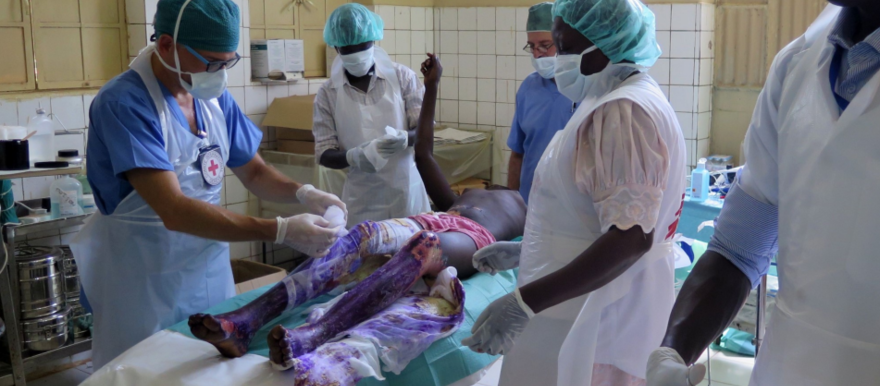The International Committee of the Red Cross has announced that it will continue supporting the Maridi Hospital for the next three months as burn victims of last month’s fuel tanker explosion continue to heal and need follow-up treatment.
More than 200 people died in the explosion and about the same number were seriously injured. Red Cross sent two surgical teams and ton of supplies to Maridi in the aftermath of the explosion and it continues to treat patients at the Maridi Hospital.
“Three weeks later the patients are still convalescing. Many have begun a long healing process that requires constant medical care. The ICRC has committed itself to support Maridi hospital for the next three months. That’s on average the time that the most serious wounds would need to heal,” explained Martin Agge Norgaard, one of the surgeons deployed during the emergency.
“Burn patients need to get their dressings changed regularly to help the skin recover and prevent infections. A considerable number of well trained staff is required to perform this task,” said Norgaard, a Danish doctor who arrived in the country only a few weeks before the tragic incident.
In the two operating theatres set up by the ICRC in Maridi, 20 patients get their wounds cleaned and their dressings replaced every day by surgeons like Norgaard. A partnership has been made with the local nursing school to get students helping out the medical team. A group of physiotherapists have also joined to facilitate the rehabilitation of the victims.
Norgaard added, “I was very impressed with the stoicism of the patients in spite of their terrible situation and the acute pain.” He noted that he was particularly touched by Alex, a 7 year old boy who lost both parents to the explosion and was alone at the hospital with his older sister.
“Because of his young age, we had to change his dressings with no narcotics. He was very brave and held my hand all the way through, without complaining a single time. I felt very sad afterwards,” said the surgeon, who was quoted in ICRC’s October newsletter.
“At the beginning I was afraid that many people would die, but the days passed and most of them started getting better, including Alex, who was discharged shortly after.” “We are working with simple means, but the human body has an incredible ability to heal by itself. It needs a little help though. I believe our work is making the difference for the patients.”



